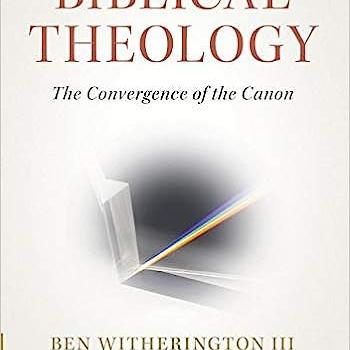On the one hand, asking Darren Aronofsky to direct an 130 million dollar movie about Noah is rather like asking Machiavelli to write ‘The Little Prince’ instead of ‘The Prince’. ‘The Black Swan’ meets ‘two white doves and a raven’. It doesn’t seem a natural alignment of the stars. But on the other hand, it certainly eliminates the ‘cheese factor’. This movie (apart from its very strange comic book opening…. was that an indirect comment on the character of Biblical stories?) could in no way be accused of being cheesy.
Nor could it be accused of being suitable for small children either. It is stark and dark, and seething with human wickedness and violence at various points. But then, that is the way the Bible describes the world,pre-flood. If you are looking for strict Biblical fidelity, then abandon hope as well. If however what you are looking for is a portrayal of the essence of Biblical story done in a dramatic and at times compelling way, then this may be the Biblical epic for you. It’s certainly a film I will go back and see multiple times. The two hours and nineteen minutes of this film do not go by quickly, but it is never without interest and intrigue.
Let’s talk about the setting first, it is set in the moonscape and volcanic territory of southern Iceland. Not exactly Noah territory, but if one was trying to give the impression of a dark landscape denuded by humankind of much potential for life, this film gets that across loud and clear. Human beings are trying to survive, and not doing all that good a job of it. Aronofsky is not worried about things like Noah and his family using tools that were not invented until a later age. He is striving for verisimilitude not ‘veritas’ when it comes to the story-telling.
The cast is really quite excellent. Several reviewers have suggested this is the best Russell Crowe has been since his halcyon days of doing Gladiator and A Beautiful Mind. I tend to agree. Even better is Jennifer Connelly who portrays Noah’s wife. Scene-stealer Anthony Hopkins is excellent as Methuselah as well, and even Emma Watson of Harry Potter fame shows she has grown and grown up as an actress, here portraying a young woman that one of Noah’s sons takes a fancy to. Ray Winstone is excellent as the wicked Tubal-Cain as well. The acting in this film is light years ahead of what we see in the recent ‘Son of God’ film.
Let’s talk about things I really like about this film: 1) its portrayal of miracles is excellent, whether the spontaneous genesis of a flower or of a forest; 2) the retelling by Noah to his family of the creation story– beautifully done; 3) the ark itself is impressive, but even more impressive are 4) the animals and birds attracted to the ark by a sort of divine spiritual gravity; 5) Aronofsky does not shy away at all from the deep theological themes of the story about human wickedness and divine mercy. Indeed, both Noah and Tubal Cain bring up the fact that humans are created in the image of their Creator and meant to fill the earth and have dominion over it. Tubal Cain takes this as a warrant to take whatever he wants, and treat animals and humans in a ruthless fashion. Noah teaches his own to treat both with respect, and gently. There is also a profound moment when Noah admits while in the belly of the ark that human wickedness was not going to be eliminated by the flood, for a streak of it ran right through even those left on the ark, who were closer to being good than many of those who were washed away in the flood. The theme of Noah the ecologist plays well too, for instance when he scolds his child for arbitrarily picking a beautiful flower without have a good utilitarian reason to do so, for it shortens the life of the flower. In other words, this is not a light weight portrayal of the story, denuded of its theological core. I liked as well the interactions between Noah and his wife, Noah and his children, Noah and Methuselah.
What about the portrayal of the Watchers, or sons of God who come down from heaven and mate with the daughters of humankind in Gen. 6.1-4? Aronofsky takes a risk in portraying them as rather like the Thing from Marvel comics– encrusted in rock (in this case volcanic rock rather than the red clay we find ‘the Thing’ encased in). This adds a sort of comic element to the story which threatens to get it off track, for make no mistake this is no light Sunday school portrayal of the story. It is indeed heavy going, dealing with the deeper themes in the story, not with the ‘and they all marched into the ark two by two’ element. The idea is that God imprisoned the Watchers in rock so they could not escape the fate of the fallen on earth, rather than allowing their spirits to return to heaven. The focus of Aronofsky is on the human dilemma, not on the animals. Indeed, we do not really even see the animals disembarking once the ark finally finds dry land. There are a variety of other elements about the story which I enjoyed, but I pass on now to the problematic elements.
SPOILER ALERT: YOU MAY WANT TO SKIP THE NEXT PARAGRAPH IF YOU HAVEN’T SEEN THE FILM
While it is understandable that Aronofsky felt he had to add tension to the story once the ark set sail, because otherwise its just a boring boat ride for 40 days in a rain storm, it was unnecessary to add two plot twists to get this accomplished, first by having a wicked stowaway on the boat which leads to strife between Noah and his more estranged son Ham, but then secondly by having Noah misread God’s intent when it came to the future of humankind, even to the point of being prepared to kill any female babies that might be born to his offspring. Fortunately, he sees the light of day before becoming a homicidal baby-killer, but here the portrayal of Noah is unrecognizable when it comes to the Biblical story, and I predict that this element in the story, which is over-played will cause a strong aversion to the film on the part of the Biblically literate who love the story. The Tubal-Cain add on would have been enough to heighten the tension in the tale. We didn’t need to portray ‘how Noah lost his mind from spending too much time cooped up in a smelly ark for over a month’.
—-
I like this film in many ways, and will go back and watch it several more times. It is a welcome relief to the superficial portrayals in “Son of God’ and other similar films by non-risk taking film makers, especially Christian ones. Whether it is worth seeing in 3-D is another question. Rain, after all, is rain in any dimension.
I want to make clear that the snide comment that this is an atheistic portrayal of a Biblical story, which presents us with the God atheists love to hate, namely a God who judges human wickedness, is frankly unfair. Atheists don’t much like any Biblical God, including the one who has mercy on the human race despite its great sin and wickedness. That God is as much a threat to their desire for human autonomy and the wish to banish any divine from the human sphere, as a God of judgment. No, in fact despite the difficulty Noah has in communicating with and getting answers from God, in the end both God’s justice and his mercy, both his righteousness and his setting right of things, both his rain and his rainbows come through loud and clear in this film. Perhaps, with the clouds scudding away into the distance, this film will shed fresh light and provide a paradigm for future film-makers that shows that doing a Biblical epic on film well and doing so creatively are not mutually exclusive options going forward.


















